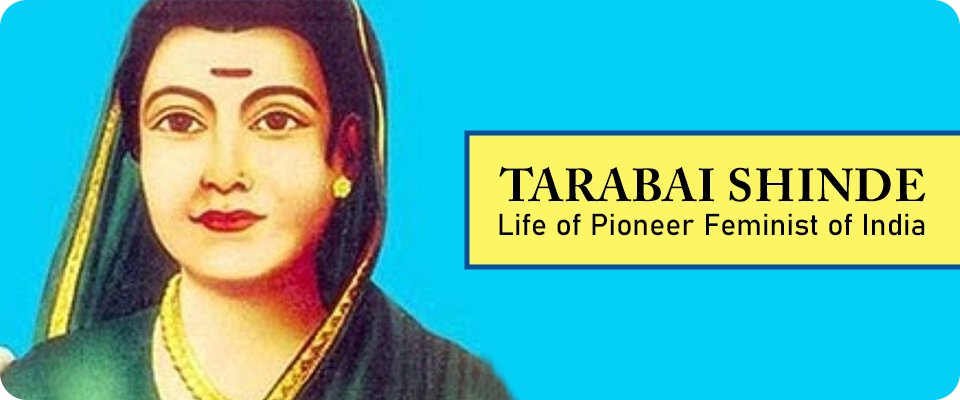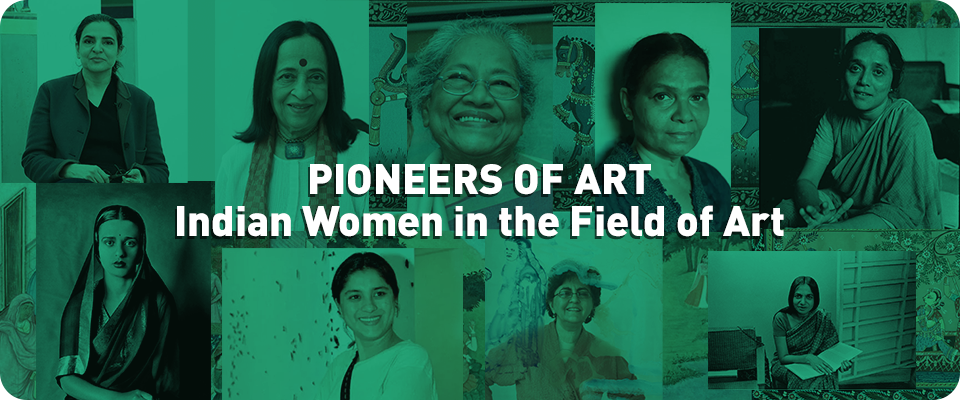![]() English
English
Change
Tarabai Shinde: Life of Pioneer Feminist of India

Characterized by increasing demands for social reforms in the nineteenth century in India, many female activists apart from male contemporaries, set out to question the patriarchal system in the country. A few such females were Savitribai Phule, Ramabai Ranade, etc. One of the prominent among those who fought for woman empowerment and breaking the barriers of gender inequality was Tarabai Shinde.
The 19th century was a period where women faced restrictions on a large scale against forced widowhood, sati, age-old customs, child marriage, denial of education, and many more. These socio-cultural prohibitions led to feminist movements in India. These movements were aimed at achieving the personal, economic, social, and political liberation of women from the sole authority of their male counterparts.
Tarabai Shinde is a known feminist activist who actively fought against the patriarchal system and caste system in the country by publishing the first feminist work which is popular across the world. This article talks about the critique of the upper-class patriarchy. Her movement was marked as aTarabai Shinde: Life of Pioneer Feminist of India decisive moment in the era of the nineteenth century. She fought until her last breath and tried to bring equality to all genders.
Early Life and Education of Tarabai Shinde
Tarabai Shinde was born in the year 1850 in the village Berar of Buldhana. Her childhood was spent in obscurity and so was most of her life. She was a member of the socially elite Marathi caste of the Buldhana district of Maharashtra state. She never got the opportunity to get schooled formally in her childhood but instead was home-schooled by her father, Bapuji Hari Shinde, who himself was a radical. She was a voracious reader and a writer. She was well-versed in both ancient & modern literature.
This put her mindset and herself way ahead of the women of those times. This was an era when British Raj was at its peak. Bapuji honed Tara Bai’s linguistic skills to the core by teaching her different languages such as Sanskrit, Marathi, and English. She, unfortunately, became a victim of child marriage due to societal norms during that time. But even so, she was unconventional. The marriage didn’t become an obstacle to her. She followed the tradition o gharjavai where the husband follows his wife and stays in her father’s household.
She had made a firm decision to not have kids of her own, to break the norms of regarding childless married women as an example of social perversion or considered a travesty.
Her Protests, Movements, and Reforms
Tarabai was a compatriot of activist Jyoti Rao Phule and Savitribai Phule. She was even a member of Satyashodak Samaj or known as the ‘Truth Finding Community’ organisation. The Phule couple started a school for lower-caste girls in 1848 and in 1854 they started a shelter for upper-class widows who were forbidden from remarrying and were ostracised by the mainstream society.
Nonetheless, she received most of her experience through the works of Jyoti Rao and Savitribai Phule. Later, they accepted and involved Tarabai and groomed her in both of these initiatives. The Phule couple shared the same ideas regarding gender inequality and caste inequality in Indian society. She actively raised awareness about the double standard of men & women in society. She even spoke about the discrimination between castes in society. This allowed the citizens to question the standards they have set up for women.
Works of Tarabai Shinde
She collectively asked every person a single question that raised millions of thoughts in the minds of commoners. She asked, “But do men not suffer from the same flaws that women are supposed to have?” She wrote Stri Purush Tulana, originally in the Marathi language in response to the unfair treatment of women and the prejudices held by the society. This book is her first and only published book. There was one particular incident that fueled her heart. An upper-caste widow named Vijayalakshmi in Surat was mercilessly sentenced to death for having an abortion. After her death, many articles were published insulting women and calling them detestable.
She wrote that book in reply to the double standards, society set for men and women and how women are treated. In her work named Stri Purush Tulana, she implores readers to consider the notion that men might not be indestructible beings as they put themselves out to be but as flawed as they consider women. Note by note, she sets out the flaws women are said to have and refutes them back. Her witty and clever mind unapologetically exposed males in society during that period for their hypocritical norms, and rules towards widowed females and fights against it. In addition to this, she even criticizes the constrictions put on women.
While defending the rights of a widow to remarry, she raises her voice against the discarded widows and even adds religious scripts to solidify her point. According to the Shastras, a widowed queen was allowed to choose a rishi of her choice to beget a child. Blatantly defining patriarchy the way it is, she was unapologetic in breaking the standards of womanhood. She was a satirical writer who was involved with travesty to explicate her points. Her language is robust, powerful, and biting.
Publication of Her Only Book
Stri Purush Tulana, the book written by Tarabai Shinde was the inception of India’s first modern feminist text five hundred copies of this text were published by Shri Shivaji Press at nine annas, in the year 1882. The text was a commentary on the ‘behaviour’ of women as per religious scripts and scriptures. The identity of this book remained hidden until its re-publication in the year of 1975 by S. G. Malshe. Jyotirao Phule quoted her works in her defense in his second issue of the magazine called Satsar. He addressed her as ‘Chiranjivini’ and recommended the booklet to his colleagues.
Closing Thoughts
She is a prominent figure in Indian history who constructed the counter-model for womanhood by her juxta-positioning the norms that were pre-existent. Her texts were full-fledged extant feminist arguments after the poetry of the bhakti period. When intellectuals and activists were fully focused on the easily identified atrocities against women, she actively isolated the problems and broadened her scope of analysis to include every ideology of the patriarchal society. She opened the doors to rethink and reconsider most of the things.
Until her last breath, she remained a voice against patriarchy and the ill-treatment of women. Her feminist text till now remains a pamphlet of reference to many present-day women’s rights activists. Tarabai Shinde remained a revolutionary figure in the Indian Feminist Movement.
FAQs
Was Tarabai Shinde a reformer?
Tarabai Shinde gained most of her reform movement experience through Jyotirao Phule and Savitribai Phule. She was a feminist and a prominent figure in Indian feminist movements.
What was the name of the book written by Tarabai Shinde?
The name of the book written by Tarabai Shinde was ‘Stri Purush Tulana’ which was originally in the Marathi language.
Who was tarabai Shinde?
Tarabai Shinde was a feminist who actively raised her voice against the patriarchal society of India.
Which press published her book and in which year?
Shri Shivaji Press published her book Stri Purush Tualana in the year 1882.




